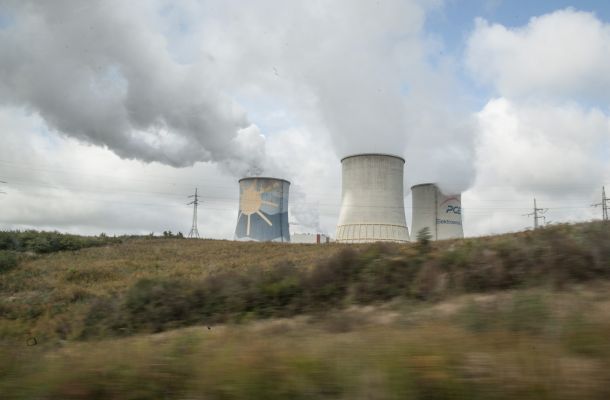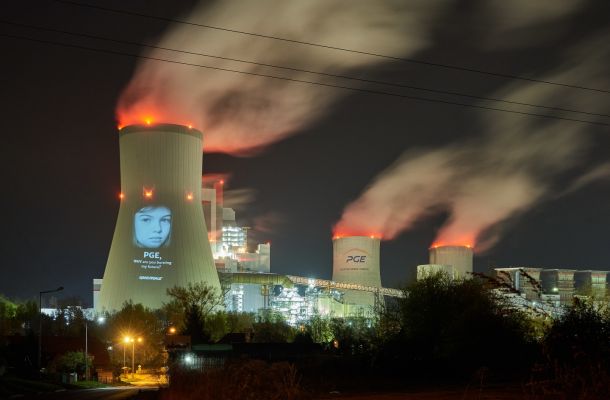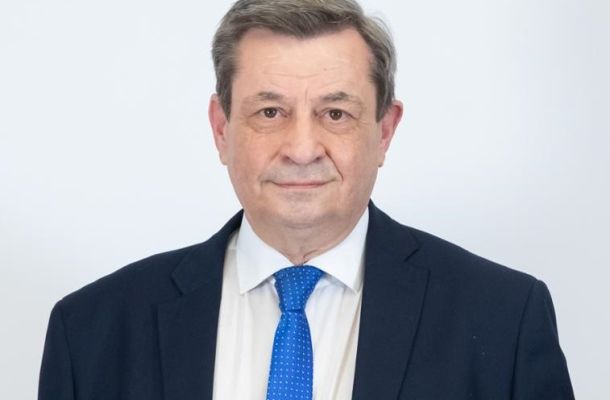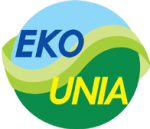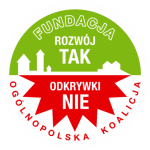Who will pay for water for the Turów opencast?
The extraction and combustion of lignite from the Turów opencast is an international problem. Primarily because it fuels the climate crisis, which affects all people in the world. Secondly, its impact negatively affects the air quality and the state of water in three European Union countries. According to a recent study commissioned by the German town of Zittau, the Polish opencast is having a negative impact on the state of the water in Saxony which could cause future problems with access to water. Similar to those of the inhabitants of the Liberec Region. Meanwhile, the Czechs calculated the costs that would have to be spent on the protection of drinking water sources in the Czech Republic due to the activities of Turow.
1. Turów is draining Germany
On Monday 12.10.2020, a conference was held in Zittau, Germany, on the impact of the Polish Turów open-pit mine on groundwater in Saxony. Thomas Zenker, Mayor of Zittau, appealed to the Saxony authorities to follow the example of the Czech Republic and take legal action against the plans of PGE in Turów.
The results of a study by Dr. Ralf Krupp, a German geologist, were presented at the conference. They clearly indicate that the Polish opencast has a negative impact on the state of groundwater and surface water on the German side of the border.. Among other things, it causes a significant drop in groundwater levels (already by 100 m, and a further drop of 20 m is expected); the collapse of soil in the Zittau area, which leads to a risk of building damage.
Moreover, high sulphate concentrations are regularly detected in the lower part of the Neisse River. Acidic mine waters were also reported to have an impact on the groundwater. Additionally, due to lack of water, Dr. Krupp claims that the time of flooding of the open-pit mine after the end of its operation will be much longer than stated and the process will take 144 years!
- Every lignite mine fuels the climate crisis, but Turów also threatens the water quality and stability of the entire region. The development of opencast mining violates European environmental law. Turów must be stopped. - said Karsten Smid, energy expert in Greenpeace, Germany.
- People in the three countries are paying the price for PGE's greed, - comments Riccardo Nigro, from the European Environmental Bureau. - If the Commission is serious about the European Green Deal, climate action and the rule of law, it must immediately initiate infringement proceedings against Poland and hold PGE accountable for illegal water use.
2. The Czech cost estimated of Polish lignite mining
The Czech Liberec Region, cooperating with water companies (Severočeskou vodárenskou společností and Frýdlantskou vodárenskou) has calculated the costs that will have to be spent on the protection of drinking water sources in the Czech Republic. The main threat to them is the exploitation in the Polish lignite mine Turów, which drains water from the whole area.
According to current estimates, the costs will amount to about 1.5 billion Czech korunas (about 55 000 euro). The Czech Ministry of the Environment is obliged to report the existence of damages and the amount of costs to the European Commission and demand compensation for them," Liberecky Kraj site points out.
- This financial burden cannot be covered by entities that did not cause the problem, nor the Czech taxpayers. In my opinion, the costs should be covered by whoever caused the situation, which is PGE. That is why we sent the calculation to the Ministry of the Environment and asked for a refund to the European Commission. We have not received an answer yet. We applied for it on 12 October this year. - commented the regional chairman Martin Půta for Liberecky Kraj.
3. The appeal to action by politicians and NGOs
On October 14th in Wroclaw, there was a meeting of the Working Group G1 of the International Commission for the Protection of the Oder River against Pollution. Two days earlier, members of the working group received an appeal signed by a Polish MEP, Polish MPs, scientists and non-governmental organizations.
The appeal noted that due to the negative impact of the Turów opencast on the state of water and water management in the Czech Republic, as well as in Germany and Poland, it is necessary:
- to consider the negative impact of the Turów mine on groundwater quantity as a problem of over-regional importance,
- to act together and in a coordinated way to assess the compliance of all the countries represented in the IOCOPZ with Article 4.7 of the Water Framework Directive.
The appeal reads: "As the impacts of the Turów mine prevent the achievement of an acceptable quantitative water status by 2027 in the Czech Republic, Germany and Poland, we consider the recognition of these impacts as a significant first step towards improving the water status of the entire international river basin. Achieving good status in all water bodies by 2027 is the responsibility of all Member States, which neither the Czech Republic nor Germany can meet without the cooperation of Poland.
This approach to solving common problems for all three countries in one forum is widely accepted and supported not only by European non-governmental organizations but also by many other representatives from Germany, the Czech Republic and Poland, such as members of local governments and national parliaments and members of the European Parliament.
4. The appeal proceedings are still ongoing
On Thursday, 23.01.2020, two days after the publication of the environmental decision for the Turów open casting, RDOŚ in Wrocław issued a decision to make it immediately enforceable. The assessment procedure of the public's comments and expert opinions provided by the parties to the proceedings was initially supposed to last until March 2020, but in December the Wrocław RDOŚ declared that it has sufficient information to issue an environmental decision, despite the ongoing consultations of the environmental report in Germany, where the time to submit comments was until 20 January 2020.
Due to numerous formal shortcomings and allegations of violation of several European directives, a number of entities appealed against this decision to the General Directorate for Environmental Protection.
An appeal procedure is currently underway, which was supposed to end on October 9. As no decision has been issued so far, the proceedings will most likely be extended.
Popularne Artykuły
PGE myths vs reality
Why are you burning our future?
Polish prime minister dismisses for the truth about Turów
About Us
Our organizations jointly counteract the expansion of the open-cast Turów lignite mine in Poland for the benefit of local communities, nature and climate. We support civic activities undertaken by the international community at the interface of the Czech Republic, Germany and Poland. We strive to make the lignite-dependent Bogatynia enter the path of energy transition as well as economic and social transformation.
